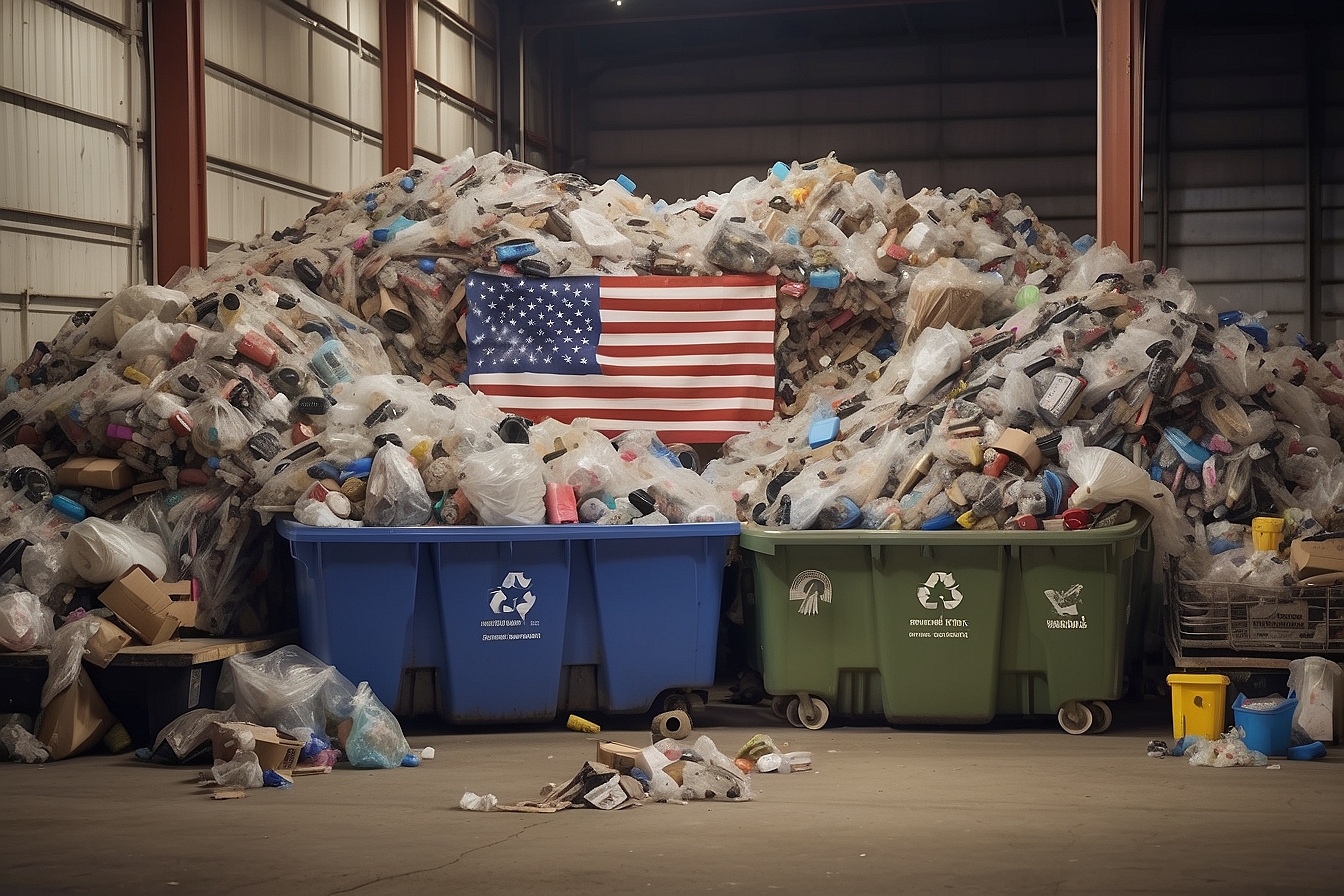We’ve all experienced that twinge of regret as we bid farewell to an empty makeup container, acutely aware that it contributes to a growing environmental quandary. Like you, we are deeply disconcerted by the stark figure: the global cosmetics industry is responsible for producing over 120 billion units of packaging each year, and distressingly, much of this cannot be reclaimed through recycling.
Our dedicated team has been steadfast in its commitment to address this concern, tirelessly exploring avenues to cultivate a more sustainable beauty regimen. We invite you on this journey with us—to uncover ways in which your individual choices can indeed make a profound difference in combating cosmetic waste.
Every thoughtful action counts towards forging a greener future!
Key Takeaways
- The global cosmetics industry produces over 120 billion units of packaging every year, a large percentage of which is not recyclable and contributes significantly to environmental pollution.
- Cosmetic products often contain harmful chemicals like parabens, phthalates, and formaldehyde that can damage aquatic ecosystems and human health when washed into our waterways.
- Workers in the cosmetic industry sometimes face exploitation through unfair work conditions and inadequate wages, highlighting the need for support towards brands that engage in ethical practices.
- Adopting a ‘buy less, buy better’ philosophy alongside supporting sustainable and ethical brands can greatly reduce one’s carbon footprint by minimising overconsumption and waste.
- Simple changes such as choosing plastic – free routines with refillable or biodegradable packaging options can help combat the pressing issues related to cosmetic industry waste.
The Environmental Impact of Cosmetic Industry Waste
The cosmetic industry’s overconsumption leads to overproduction, resulting in excessive packaging waste and harmful chemicals that pollute the environment. Exploitative practices such as unfair wages and poor working conditions also contribute to the negative impact on both the environment and workers.
Overconsumption leads to overproduction
We see shelves stacked high with beauty products, more than we could ever use. This abundance leads us to buy more than needed, contributing to an endless cycle of demand that forces the industry to pump out product after product.
Every new bottle produced adds to the environmental challenges we face – from exploiting finite resources to increasing pollution statistics.
Our appetite for variety and the latest trends fuels a cosmetic waste management nightmare. Factories churn out vast quantities of goods, often wrapped in layers of unnecessary packaging waste.
This not only exacerbates the plastic problem but also ramps up harmful emissions and toxic chemical release into our environment. Moving forward, let’s explore how switching to sustainable alternatives can help tackle these pressing issues.
Harmful ingredients
Many cosmetic products contain harmful ingredients such as parabens, phthalates, and formaldehyde-releasing preservatives. These toxic chemicals can have a detrimental impact on both the environment and human health.
They are often found in personal care items like shampoos, lotions, and makeup which end up being washed down the drain and ultimately polluting our water systems.
Cosmetic industry waste containing these hazardous substances poses a significant risk to aquatic life and may even find its way into drinking water sources. Additionally, repeated exposure to these toxins through skincare products has been linked to adverse health effects including hormone disruption, allergies, and potential carcinogenic risks.
It’s crucial for environmentally conscious individuals to be aware of the presence of these harmful ingredients in cosmetics and advocate for safer alternatives that do not compromise their well-being or contribute to environmental pollution.
Exploitation of workers
The cosmetic industry’s dark side involves the exploitation of workers. Many employees in this sector are subjected to low wages, long working hours, and unsafe conditions. This unethical practice often goes unnoticed but has a significant impact on society and those working within it.
Employers who engage in greenwashing or unethical practices contribute hazardous waste and pollution that affects both the environment and individual health. It is crucial for environmentally conscious individuals to support brands that prioritise fair treatment of their workers and ethical production processes, thus contributing to positive change within the industry.
Solutions to Reduce Cosmetic Industry Waste
To reduce cosmetic industry waste, we can create a 100% plastic-free beauty routine, choose sustainable and ethical brands, and opt to buy less but better quality products. These small changes can make a big impact on the environment and society.
Create a 100% plastic-free routine
- Replace single – use plastic bottles with refillable or solid alternatives.
- Choose products packaged in glass, metal, or cardboard instead of plastic containers.
- Use reusable cotton pads and cloths for makeup removal and cleansing.
- Opt for biodegradable or compostable packaging for beauty products.
- Look for toothbrushes, razors, and other personal care items made from sustainable materials like bamboo.
Choose sustainable and ethical brands
Opt for sustainable and ethical brands to support the environment and promote fair labour practices. By choosing such brands, we contribute to reducing the negative impact of the beauty industry on our planet.
Opting for sustainably sourced ingredients, eco-friendly packaging, and ethical manufacturing processes can significantly minimise pollution statistics related to plastic waste and chemical exposure in cosmetic products.
Supporting sustainable and ethical brands also has a positive effect on society by promoting responsible consumption patterns while ensuring that workers involved in production are fairly treated.
Buy less, buy better
To reduce the environmental impact of cosmetic industry waste, we can make a significant difference by adopting a “buy less, buy better” approach. This means being mindful about our purchases and opting for high-quality products that are ethically produced and have minimal packaging.
By prioritising quality over quantity, we can decrease our contribution to overconsumption and overproduction in the cosmetics industry, which in turn reduces plastic pollution and waste disposal.
Supporting sustainable and ethical brands is crucial in ensuring that harmful ingredients are not being utilised in cosmetic production processes. Embracing this mindset not only benefits the environment but also supports positive societal change by discouraging the exploitation of workers within the industry.
Making conscious choices as consumers holds immense power to steer the cosmetic industry towards more responsible practices.
Conclusion
In conclusion, cosmetic industry waste has a significant negative impact on the environment. Overconsumption and overproduction contribute to pollution and harmful effects on the ecosystem.
By choosing sustainable brands and reducing our consumption, we can actively work towards preventing further damage to our planet. It is essential for us as consumers to take responsibility for our choices and support ethical practices in the cosmetic industry.
FAQs
1. What is the dark side of cosmetic industry waste?
The dark side of cosmetic industry waste refers to the negative effects this type of pollution has on our environment and society.
2. How does cosmetic industry waste harm the planet?
Cosmetic industry waste can lead to harmful impacts such as polluting our water sources, damaging wildlife habitats, and contributing to overall pollution.
3. Are there ways to control pollution from cosmetic industry waste?
Yes, implementing pollution control measures and developing methods for pollution prevention can significantly reduce the impact of cosmetic industry waste on the environment.
4. Can individuals help reduce the negative effects of cosmetic industry waste?
Absolutely! Everyone can contribute by choosing eco-friendly products, recycling where possible, and supporting brands that prioritise sustainable practices in reducing their environmental footprint.





